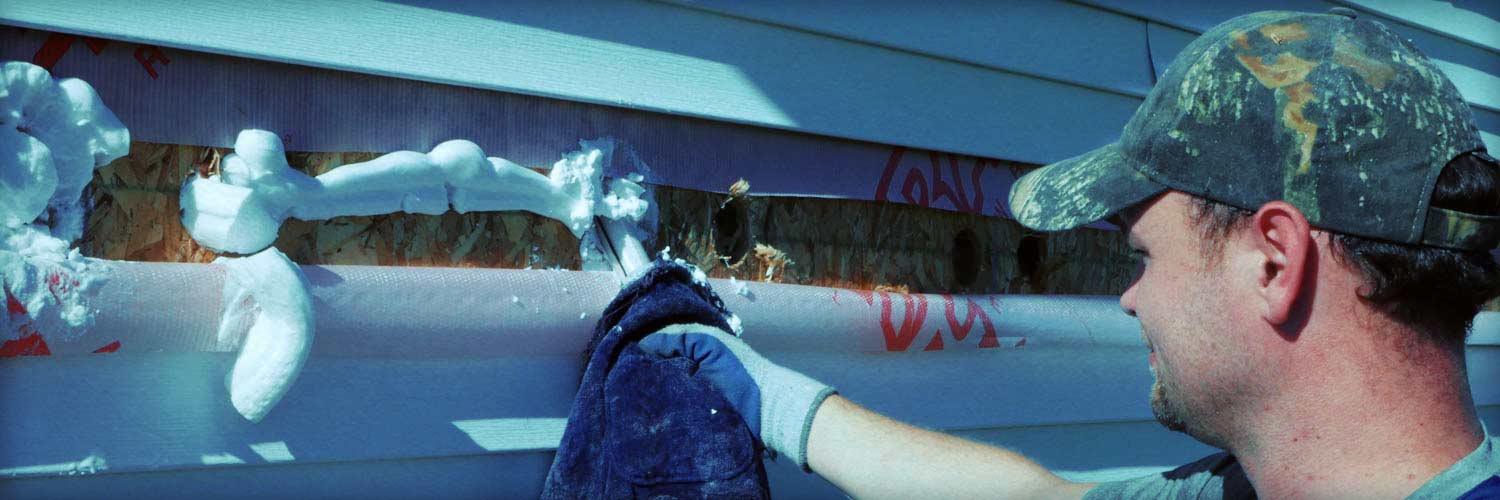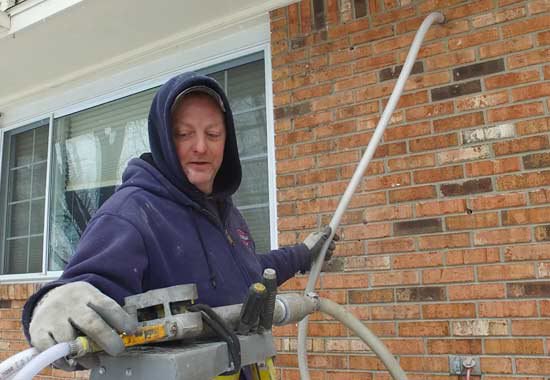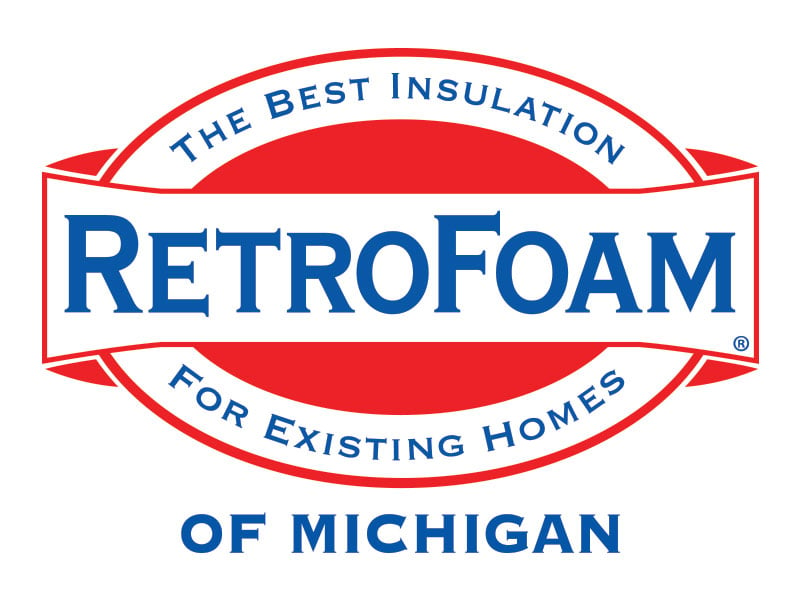What is RetroFoam Home Insulation?
injection foam insulation | Existing walls insulation | existing home insulation


You’ve decided on injection foam for your exterior walls and have been reading a lot about your options.
One of your options is RetroFoam injection foam, so you want to learn more about how it works, what it’s made of, and everything the material has to offer.
RetroFoam of Michigan was the first of dozens of dealers across the U.S. to offer the injection foam to homeowners. We started offering RetroFoam insulation back in 2002, so we have an intimate knowledge of the product and how it works.
In our continued efforts to educate homeowners, we will provide all of the information you need to know about RetroFoam home insulation.
What is RetroFoam Home Insulation?
RetroFoam home insulation is an injection foam material that is installed into enclosed wall cavities.
Unfortunately, some people use the term spray foam interchangeably with injection foam, which leads to some confusion. Both foam products work the same way: They create an air seal in your home or pole barn, which makes the home more energy-efficient and comfortable.
The differences come in when it comes to how they are installed, the products, and how they perform.
Injection foam insulation is hypoallergenic, non-toxic, and environmentally friendly. It also doesn’t have an odor or cause off-gassing. RetroFoam home insulation is Class 1 Fire-Rated, which means it has a smoke development of less than 450 and a flame spread index of 25 or less.
This fire rating means RetroFoam is just one of many materials that are the most fire-resistant, but not fireproof.
RetroFoam injection foam is an effective product for re-insulating and air sealing existing exterior walls and concrete block walls.
How RetroFoam Insulation Works
RetroFoam injection foam isn't just insulation -- it's also an air barrier.
This means it seals enclosed spaces like your existing walls, preventing air from sneaking in or out.
Unlike traditional insulation, RetroFoam injection foam keeps its shape forever. It won't settle, compress, or sag over time like cellulose and fiberglass do. That's because it fills every nook and cranny in the wall cavity.
Your insulation should keep your home's temperature steady without making your AC or furnace work overtime. The air seal created by RetroFoam helps lower your energy bills while keeping your home cozy.
Good insulation tackles both heat transfer (conduction) and airflow (convection), key factors in your home's energy efficiency and comfort. RetroFoam excels at reducing air leakage and providing heat resistance, making your home more energy-efficient and comfortable.
What is RetroFoam Home Insulation Made Of?
RetroFoam home insulation is a three-part resin injection foam designed for the insulation of enclosed cavities.
The resin is mixed with a foaming agent and water in the trailer where it creates the RetroFoam insulation. The material looks very similar to shaving cream in consistency.
This consistency helps the injection foam fill the enclosed cavity as it spreads around wires and pipes that may be in the existing walls.
RetroFoam Home Insulation Process

When installing RetroFoam home insulation, you won’t have to worry about tearing your drywall down or ripping your home apart.
That’s because this injection foam can be installed from outside your home. If your home has old fiberglass, it doesn’t need to be removed before installation. If loose cellulose is in the wall cavities, crews will remove as much of that material as they can before injecting the foam.
The process changes slightly depending on the type of siding your home has.
A home with aluminum or vinyl siding will have a piece of that siding removed all around the home. A hole is then drilled into each stud cavity and the RetroFoam is injected into the cavity. Once the cavity is full, the holes are plugged with a styrofoam plug, and the siding is replaced.
For a home with a brick exterior, small holes are drilled through the mortar joints between every stud to inject the foam. Once the cavities are full, the holes are re-mortared.
Lastly, a home with wood siding has a slightly different process. If the siding can be easily removed, the same process for aluminum and vinyl siding is followed. If the siding can’t be removed, crews must drill holes through the siding to inject the foam. Once the cavities are filled, the holes are closed with wooden plugs.
From slate to stucco, there isn't an exterior type we haven't worked with to install RetroFoam.
RetroFoam Insulation Benefits
There are a lot of benefits to adding RetroFoam injection foam to your home.
RetroFoam reviews show homeowners experience more comfortable homes and lower monthly energy bills.
Some other benefits include:
- Lower monthly energy bills.
- No more drafts or cold walls.
- Creates an air seal that stops air leaks.
- Home is much more comfortable.
- Blockage of pollutants and allergens from getting into the home.
- Pays you back over time with energy savings.
- Reduces airborne noise.
RetroFoam Insulation Problems
We are all humans, and that means we can make mistakes.
How those mistakes are handled says a lot about a person, as well as a business. Some of the RetroFoam problems are based not so much on the material but on installation. A good RetroFoam dealer will offer a lifetime warranty that covers not only the product but the workmanship as well.
While these problems are rare, some issues homeowners have experienced include:
- The wall cavity isn’t completely filled.
- More expensive than traditional insulation.
- While rare, if there is too much pressure during the installation, your drywall could be damaged.
The Network of RetroFoam Dealers
RetroFoam has dealers across the U.S. in 28 states, as well as in two other countries.
The manufacturer trains each dealer on the best ways to install RetroFoam home insulation. As part of the dealership start-up, the dealer is provided with state-of-the-art equipment, expert training, and marketing tools.
The company also helps network the dealers together so people who are new to the business always have an experienced person to reach out to.
History of RetroFoam Insulation
In the early 1980s, Polymaster, the parent company of RetroFoam, started a business manufacturing foam insulation. This new product was different from foam created by companies in previous years because it was low in formaldehyde.
For nearly twenty years, Polymaster set the industry standard for foam insulation R-Value. In 2002, Polymaster’s InsulThane was one of the first polyurethane foam products on the market with Zero Ozone Depletion Potential (ODP).
That same year Polymaster introduced its premium residential foam product RetroFoam.
Learn More About RetroFoam of Michigan
You’ve now learned about all things RetroFoam, but what about RetroFoam of Michigan?
If you’d like to learn more about us and how we can make your home more comfortable and energy-efficient, check out the Learning Center on our website.
Related Articles
How Do Crews Know if the Wall Cavity is Full When Injecting Foam Insulation?
About Amanda Emery
Amanda previously has worked as a breaking news and crime reporter, TV news producer, and editor in Flint and Detroit. Throughout her career as a journalist, she has won several awards from The Society of Professional Journalists - Detroit Chapter and the Michigan Press Association. As part of the RetroFoam of Michigan family, Amanda uses her experience as a journalist to write content that will help educate homeowners on the benefits of foam insulation. When Amanda isn’t writing, she’s spending time with her husband and rescued huskies. She also loves knitting, making art, cooking, and hosting dinner and a movie night for friends and family.



